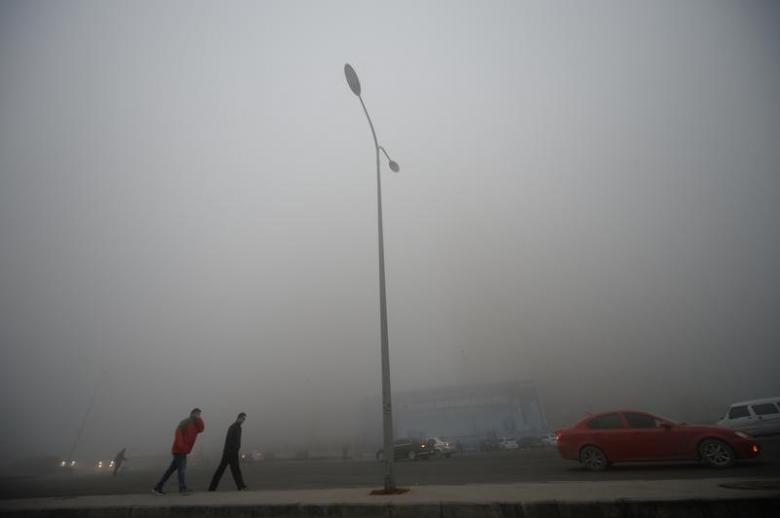
China launched a satellite to monitor its greenhouse gas emissions early on Thursday, the latest step in efforts to cut its carbon footprint, the official Xinhua news agency said.
 |
| People walk in heavy smog during a polluted day in Jinan, Shandong province, China, December 20, 2016. |
China launched a satellite to monitor its greenhouse gas emissions early on Thursday, the latest step in efforts to cut its carbon footprint, the official Xinhua news agency said.
The launch follows the United States joining China in formally ratifying the Paris agreement to curb climate-warming emissions. It also comes as large sections of northern China have been shrouded in near-record levels of air pollution for most of the past week, disrupting flights, closing factories and schools, and forcing authorities to issue red alerts.
China launched the satellite via a Long March-2D rocket from Jiuquan Satellite Launch Centre in the northwestern Gobi Desert, Xinhua said.
The 620 kg (1,370 lbs) satellite TanSat was sent into a sun synchronous orbit about 700 km (435 miles) above the earth and will monitor the concentration, distribution and flow of carbon dioxide in the atmosphere, said Yin Zengshan, chief designer of TanSat at the Chinese Academy of Sciences micro-satellite research institute.
The launch comes after an international study showed that world greenhouse gas emissions stayed flat for the third year in a row in 2016, thanks to falls in China.
The satellite will provide China's policymakers with independent data for three years, the news agency said.
TanSat will take readings of global carbon dioxide every 16 days, accurate to at least 4 parts per million.
The rocket carrying TanSat also carried a high-resolution micro-nano satellite and two spectrum micro-nano satellites for agricultural and forestry monitoring, the agency added.
China is the third country after Japan and the United States to monitor greenhouse gases with its own satellite, the agency said.
(Source: Reuters)





